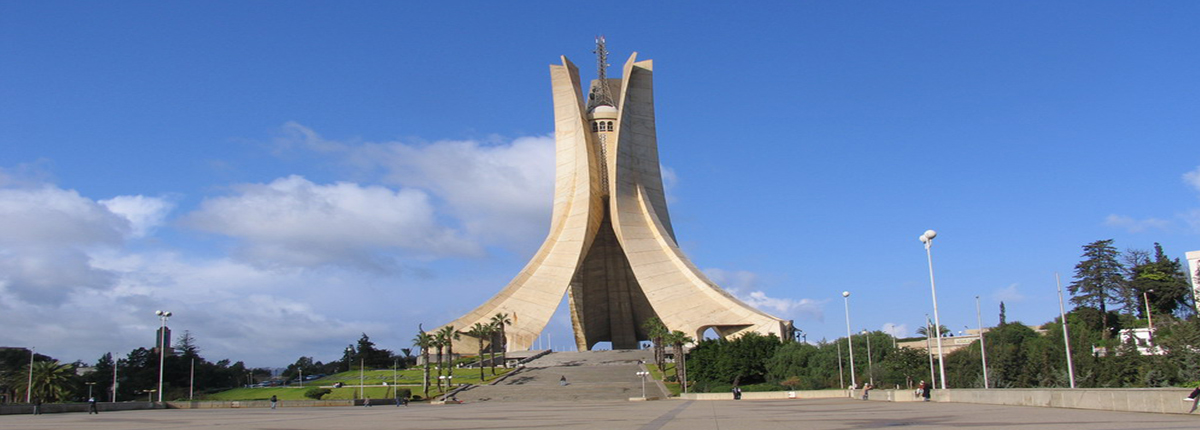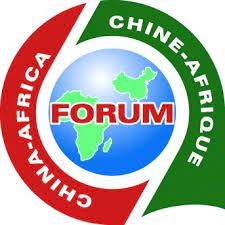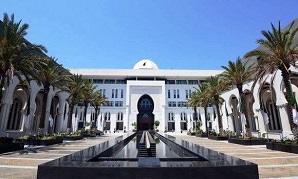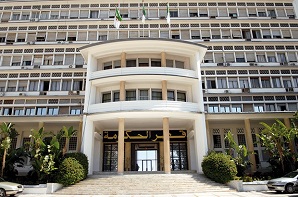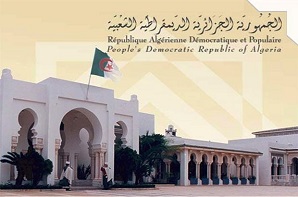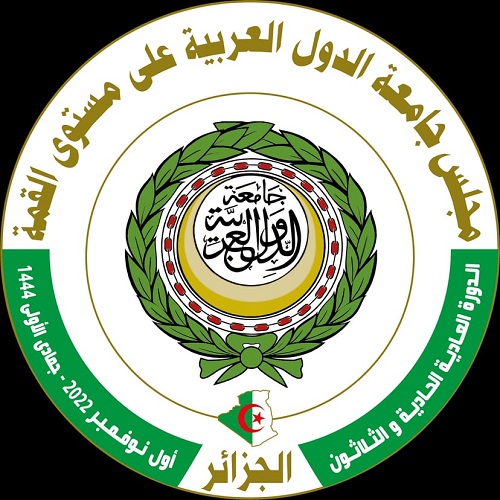NEWSmore
President Tebboune chairs a meeting of the Council of Ministers
The Council of Ministers held on Saturday, January 18, 2020, a meeting under the chairmanship of the President of the Republic, Mr. Abdelmadjid Tebboune, which was approved by a statement, the full text of which follows:The President of the Republic, Mr. Abdelmadjid Tebboune, Supreme Chief of the Armed Forces, Minister of National Defence, today, Saturday 22 Joumada El Oula 1441, corresponding to 18 January 2020, chaired a meeting of the Council of Ministers.
1 - At the opening of the Council's proceedings, Mr. Abdelmadjid Tebboune said in particular the following: We are, as you know, at the beginning of a process which should lead us, with God's help, to a refoundation of the State and its Institutions, on sound foundations and to an economic, social and cultural recovery which will guarantee a decent life for every Algerian in a climate of peace and serenity.
Achieving these objectives requires the mobilization and determination of all and the awareness of each and everyone of the stakes and challenges that we must take up together. Also, in the daily exercise of the obligations of your office, you must always keep in mind the imperative of their realization.
I should also like to stress that from now on, the exercise of missions and duties will be evaluated and assessed in terms of the responsibility and accountability attached to them, taking into account, essentially, the level of actual response to the needs and concerns expressed by citizens in general and by economic and social operators in particular.
Indeed, it is essential for the credibility of the State and public institutions that the commitments entered into be honoured, as this is the sine qua non condition for restoring the bond of trust between the State and the citizen.
2 - The Prime Minister, for his part, presented a review of government activity.
3 - The Council of Ministers then began examining the assessments and prospects for the revival and development of the sectors on the agenda, in preparation for the Government's draft Action Plan which, once finalized, will be submitted to the Council of Ministers before being submitted to Parliament for approval, in accordance with the constitutional procedures in force.
4 - The Council of Ministers first heard a presentation by the Minister of Industry and Mines on the balance sheet and prospects for the recovery and development of his sector.
The action plan presented proposes to implement a strategic development model for industrial sectors based on (i) the development of national and human resources, (ii) the promotion of a framework for the development of the enterprise and (iii) the improvement of the business climate.
Thus, in order to ensure the strategic development of industrial sectors, the communication emphasizes five guidelines consisting in (i) accelerating the diversification of national industry, (ii) intensifying the development of mining industry, (iii) rationalizing the territorial deployment of industrial development and the exploitation of economic land, (iv) strengthening the country's institutional capacities in terms of industrial and mining development through, in particular, the establishment of a national consultation framework and (v) taking charge of the technological economic stakes which are at the heart of the industrial and mining processes.
Following this, Mr. Tebboune ordered a break with past practices, given that citizens are waiting for the fulfilment of the promises to which he has committed in order to see change in their daily lives. He stated that the industrial plan must include three (03) measures:
- The first one, of an urgent nature, must bring concrete answers to the sensitive files, particularly the importation of vehicles in SKD-CKD kits, insisting on the improvement of this situation and the implementation of new rules, in addition to the question of the Steel Complex of El Hadjar.
- In the medium and long term, he said that efforts must be directed towards the creation of a real industry, consisting essentially of light, small and medium industries, generating wealth and making a break with the dependent industries. The excessive reliance on imports has frozen the minds and killed the spirit of initiative and the creative and innovative capacity of Algerians, he deplored.
- The President of the Republic also insisted on the need to put an end to the increased influence of lobbies and interest groups in public policies.
He also called for the establishment of a stable legal system for a period of at least ten (10) years capable of ensuring clarity for investors, the objective being to encourage businessmen to invest.
Concerning imports of equipment and services, President Tebboune stressed the need to establish strict control in order to avoid dramatic situations caused, for example, by heating appliances, ordering a thorough investigation in this respect.
Furthermore, the President of the Republic referred to the importance of the development of manufacturing industries, such as the processing of esparto grass and the agri-food industries.
Stressing the importance of encouraging private investment and devoting State funds to investment in strategic sectors, Mr. Tebboune recommended immediate support for private investment with the possibility of granting significant incentives to operators using local raw materials.
In the same context, the President of the Republic raised the issue of industrial land, ordering the Government to conduct an inventory and make proposals, particularly in the light of the anarchic exploitation of land for the rational use of these industrial zones, with the possibility of recovering unused land. It also called for the encouragement of the creation of cooperatives for the development or creation of new industrial zones within the framework of a new vision, with clear and precise specifications.
In addition, the President of the Republic instructed the Minister of Industry and Mines to organize National Conferences on the new industrial policy in which will take part the skills of the diaspora and the various economic actors, with the assistance of international institutions, for the elaboration of a national industrial policy meeting the aspirations of the new Algeria.
In the same context, President Tebboune advocated the fight against the importers who practice over-invoicing, at the origin of a real bleeding of foreign currency resources, through the criminalization of these practices.
5 - Continuing its work, the Council of Ministers heard a communication presented by the Minister for Agriculture and Rural Development on the sector's action program for the five-year period 2020-2024.
This program aims to integrate innovation as a key to agricultural modernization and development through the integration of innovation: (i) the construction of a sustainable agricultural policy, (ii) the consolidation and promotion of measures for rural populations and (iii) the conservation and enhancement of the forestry heritage.
By 2024, this plan should result in (1) increased production and its integrated development, (2) improved living conditions for rural populations in fragile mountain, steppe and Saharan areas, (3) agro-industrial integration and (4) job creation.
The measures planned for the development of this sector concern in particular the protection, purification and optimization of agricultural land, the strengthening of food security, the development of Saharan agriculture and stockbreeding, the agricultural and rural development of mountain areas, the extension and development of forestry potential, water and soil conservation, the fight against desertification and the sustainable management of genetic resources.
Accompanying measures are also envisaged, in particular the strengthening of the financing system for strategic activities, the encouragement of investment, the strengthening of human and technical assistance capacities and the digitization of the information system for better governance.
Agriculture and industry are essential pillars for the national economy, the President of the Republic said, stressing the imperative need to break with past practices by moving towards new management methods of the sector adapted to the needs and specificities of our country.
Referring to Saharan and mountain agriculture, the President of the Republic called for the promotion of wealth-creating niches, such as fruit growing and beekeeping, with a reduction in prices so that these products are within the reach of the citizen.
It called for the establishment of an Institute of Saharan Agriculture in the South to provide training and guidance in this type of agriculture, emphasizing the need to free the agricultural sector from bureaucratic obstacles.
In addition, the President addressed the issue of meat imports, pleading for the encouragement of local production in order to reduce the import bill. He also ordered an inventory of agricultural land in all wilayas and the speeding up of the regularization of the legal situation of land.
In this regard, the President has identified two priorities for the agricultural sector: the final treatment, within a period not exceeding six (6) months, of the issue of the lack of milk, through the implementation of a policy of modernization and partnership. He also pointed out the need to put in place a national policy for the storage of food products to alleviate marketing problems.
In the same vein, Mr. Tebboune considered it essential to solve the irrigation problem, particularly in the Highlands and the South with a view to increasing the irrigated areas through the use of modern means.
6 - The Council of Ministers also heard a communication presented by the Minister for Housing, Town Planning and Urban Development on the action plan for the sector, which aims, on the one hand, to solve the housing problem once and for all by targeting low-income households as a priority and, on the other hand, to create the conditions for a preserved urban and rural environment, enhanced and conducive to the development of the citizen, by implementing a genuine town planning policy, taking account of architectural standards and preserving the heritage.
The action plan provides, in particular, for the intensification of housing production through the effective mobilization and direction of financial resources, the finalization of the current program, the commitment of a new program of one million housing units for the period 2020-2024, all segments combined, the delivery by 2024 of 1.5 million housing units, the eradication of shantytowns on the national territory, the reduction of the deficit of the "AADL 2" program, the treatment of the problem of old buildings, and the continued creation of 120.000 housing units social plots to meet housing demands in the wilayas of the South and the Highlands.
In the context of the development of a preserved urban and rural environment, it is planned, in particular, to revise the Act on town planning and urban policy, to revitalize the control function in the area of town planning, to continue the construction of new towns and to enhance architectural production.
Beyond these objectives and the actions which underlie them, the sectoral action plan intends to promote national production and encourage the use of national means of study and realization, to intensify the use of local materials, to ensure the accompaniment of young entrepreneurs, to set up a statistical information system to follow the demand for housing including the recourse to the digitalization of procedures and, finally, to valorize scientific and technological research in the field of construction.
The President of the Republic stressed the need to finalize the programmes under way as soon as possible. He stressed that the implementation of any new housing construction programme must take account of funding constraints. Above all, it must not be carried out to the detriment of quality, architectural aspects and urban planning.
He also emphasized the right of citizens to decent housing, stressing the need to combat precarious housing and eradicate shanty towns by taking the necessary measures to prevent their reappearance, in addition to punishing offenders.
In this regard, he instructed the Ministers of Interior and Housing to set up a special mechanism to monitor this issue and combat cases of connivance in this regard.
President Tebboune reiterated the need to concretize his commitments in the area of housing.
In addition, the President of the Republic has given guidelines for the improvement of housing through the strengthening of technical control of constructions, the fight against fraud in materials, the prohibition of the use of wood in public building sites in order to preserve forest wealth, and the reduction of imports.
In this regard, he instructed the creation of a housing bank and urged for a global reflection on the creation of peripheral cities in order to contain the exodus towards big cities.
7 - The Council of Ministers then heard a statement presented by the Minister for Trade on the assessment and prospects for the recovery and development of his sector.
Recalling the assessment of the year 2019, the Minister drew up a report on the activities of control, regulation and organization of markets, particularly the measures for the gradual eradication of informal markets, the reception of two (02) wholesale fruit and vegetable markets and the continuation of the realization of six (6) other markets that will be received during the year 2020.
As regards the prospects for the development of internal trade activities, the action plan provides for a series of measures relating, in particular, to the improvement of market organisation conditions, the generalisation of electronic payment and the fight against all forms of waste.
In the area of foreign trade, the main points mentioned are the trade balance situation, import control procedures and the development of non-hydrocarbon exports. Thus, the persistence in 2019 of the trade balance deficit is noted, with a drop in imports and exports of more than 7.7% and nearly 13% respectively, while non-hydrocarbon exports recorded a reduction of nearly 10%.
With regard to the prospects for the development of foreign trade, the action plan provides for a series of measures and procedures for the five-year period 2020-2024. These are essentially the evaluation of international trade agreements and bilateral and multilateral trade relations, the rationalization of imports, the protection of the national product and the encouragement of "non-hydrocarbon" exports.
Referring to the urgent issues in this context, Mr. Tebboune stressed the need to resolve them by involving civil society, calling for a change in behavior, mentalities and practices, and for appropriate decisions to be taken, particularly with regard to local markets.
Furthermore, the President recommended the establishment of a statistical guide to promote national production with a ban on the import of locally manufactured products, with the aim of protecting the national product and reducing the import bill.
In the same vein, Mr. Tebboune instructed the creation of laboratories at all border accesses, ports and airports in collaboration with the Ministry of Health, involving the University, with a view to strengthening food import control mechanisms in accordance with international standards, for the protection of citizens against counterfeit products with the consolidation of judicial procedures against fraud.
In the same sense, the President of the Republic has given instructions for the creation of free zones with neighboring African countries in order to put an end to the scourge of smuggling.
Furthermore, he stressed the need to reduce the import bill for medicines by encouraging local production and subjecting imported pharmaceutical products to certification for the protection of citizens' health.
With regard to foreign trade, the President of the Republic, while noting the deficits in our trade balance, indicated that measures to rationalize imports must not be to the detriment of the functioning of enterprises and the essential needs of consumers.
He also indicated that measures to protect national production and trade defence must be considered intelligently and in compliance with our international trade commitments. The non-hydrocarbon export promotion strategy must be implemented very quickly in close collaboration with the relevant ministerial departments.
With regard to trade agreements already concluded or those still under discussion, the President of the Republic has instructed the Executive to make a rigorous and objective assessment of their effects on the national economy, while stressing that foreign trade policy must be the subject of more robust sectoral consultation mechanisms.
Finally, the President of the Republic stressed that imports must be a complement to the national economy and not an alternative.
8 - The Council of Ministers then heard a presentation by the Minister of Health, Population and Hospital Reform on the prospects for the revival and development of his sector.
The sector's action programme is aimed in particular at drawing up a health map and a health organization plan, a series of measures designed to strengthen the capacities of local health structures and hospital infrastructures, improve the supply of medicines, improve health coverage and train health professionals.
In the area of health coverage in the wilayas of the South and the High Plateaux, it provides, in particular, for the development and strengthening of programmes specific to the wilayas of the South and the High Plateaux, namely the programme to combat MTH, the programme to combat cutaneous leishmaniasis, the fight against scorpionic envenimation, trachoma, malaria and other vector-borne diseases, the establishment of the tropical diseases observatory in Tamanrasset and the development of the intervention capacities of fixed and mobile medical teams in the area of early detection and rapid response to epidemic phenomena, as well as the improvement of conditions and incentives for health professionals in the southern wilayas and the high plateaux.
Following this presentation, the President of the Republic ordered a break with past practices in the field of health and the adoption of an emergency plan focusing on two priorities, namely care in the emergency services and care for pregnant women.
Believing that the Emergency and Obstetric Services are the weakest link in the health system, Mr. Tebboune called for a reorganization of the sector and practical measures for the training of emergency doctors and paramedics, in addition to the encouragement of these doctors through appropriate incentives.
Furthermore, the President of the Republic stressed the importance of prevention in consultation with civil society associations, some of which may be of public utility and therefore benefit from State aid with a view to reducing the number of emergencies and encouraging the use of local polyclinics, in addition to the establishment of consultation mechanisms to avoid unnecessary travel to emergency departments.
In this context, the President of the Republic has warned against any medical service refusing to admit pregnant women just before giving birth.
Stressing the imperative of early detection of geriatric and chronic diseases and cancers, President Tebboune noted the need for serious reflection on the issue of civil service and incentives, giving priority to the training of doctors from the South to make up for the lack of specialists in this region of the country.
The President of the Republic also ordered the acceleration of the construction of a hospital with a capacity of 700 beds in Algiers to relieve the pressure on existing hospitals, stressing the need to speed up the digitization of the sector in order to improve services.
Referring to the phenomenon of violence against medical staff in hospitals, he called for measures to be taken, including contractualization with private companies to guarantee the safety of health personnel and infrastructure.
9 - The Council of Ministers concluded its deliberations with a statement by the Minister for Micro-Enterprise, Start-ups and the Knowledge Economy on the development prospects of his sector.
The planned action plan includes the preparation of a draft law aimed at creating and defining the institutional label of Algerian start-ups and the labelling of incubators in accordance with international standards, as well as the establishment of a specific financing system.
It also provides for a series of tax exemption incentives for the benefit of start-ups and investors, including those from the diaspora.
In addition, the action plan provides for the launching of a series of intersectoral actions to stimulate and develop the knowledge-based economy such as the establishment of sectoral competitiveness clusters by geographical areas, the installation of technology transfer institutes in partnership with industrialists, universities and grandes écoles as well as the launching of industrialization projects in accordance with "industry 4.0" standards.
Finally, it provides for the setting up of an information system to ensure the monitoring and development of start-ups and their environment (incubators, accelerators).
Speaking at the end of this presentation, Mr Tebboune ordered the development of an urgent programme for start-ups and small and medium-sized enterprises (SMEs), including the creation of a special fund or bank for their financing.
He also ordered the organization of National Conferences with the participation of national competences, inside and outside the country, with the maintenance and the revitalization of the Ansej mechanism. It instructed the Prime Minister to develop a mechanism for the follow-up of the digitization operation of State institutions.
10 - The President of the Republic announced that, in order to make the procedures for appointment to senior State posts more flexible and to speed up the movement of senior civil servants, he has decided to transfer the power of appointment of a number of State officials to the Prime Minister, in accordance with the relevant constitutional provisions.
11 - Before closing the proceedings of the Council of Ministers, Mr. Abdelmadjid Tebboune urged the Government to speed up the process of drawing up the Action Plan, taking care to ensure the overall coherence of the Government's actions.
Pursuing his orientations, the President of the Republic insisted on the imperative of prioritizing priorities according to our financial and material capacities by establishing a precise implementation schedule. He also stressed the need to ensure the fulfilment of all the commitments made in order to restore the confidence of our people in their leaders, by favouring a pragmatic approach based on consultation, openness, transparency and rigour and directed exclusively towards the realization of the general interest.
The Head of State stated that this approach must be based on our determination to make a genuine break with past practices and promote new modes of governance that meet the expectations of our people.
"It is on the concretization of our commitments that the recovery of the citizen's confidence in his institutions, his adherence to actions and his full and sincere contribution to the realization of our development programmes depends," he added.
Before adjourning the meeting, the President of the Republic made a number of remarks on the basis of which he gave the Government the following instructions:
- To take all possible measures to solve the problem of road congestion in the capital, notably by resorting to international expertise, recommending the construction of bridges and hoppers.
- Carry out a comprehensive and in-depth assessment of the National Passenger Maritime Transport Company (ENTMV) and a review of the problems faced by its vessels at foreign ports.
